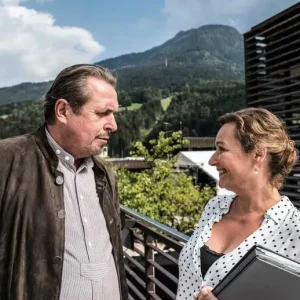**Spoiler Alert: The following contains major plot points and reveals from “Die Rosenheim-Cops,” specifically discussed in an interview with Sarah Thonig about her 10 years on the show.**
The interview with Sarah Thonig, celebrating a decade of her portrayal of Miriam Stockl in “Die Rosenheim-Cops,” delves deep into the evolution of her character and the overarching narratives of the series. While initially presented as a somewhat naive and bookish newcomer to the Rosenheim police force, Miriam’s journey over the ten years is far from predictable. Thonig reveals significant character arcs, hinting at both professional and personal triumphs and devastating setbacks.
One major revelation concerns Miriam’s relationship with her colleagues. The interview confirms longstanding fan theories about the complex dynamic between Miriam and her long-time partner, suggesting a significant turning point in their professional and potentially romantic relationship. Their collaboration on a particularly challenging case, detailed in the interview, involves a shocking betrayal and pushes their partnership to its breaking point. This case, a multi-episode arc spanning several seasons, exposes a hidden enemy within the Rosenheim police department itself, leading to unexpected alliances and betrayals.
Furthermore, Thonig reveals a pivotal personal storyline that dramatically reshapes Miriam’s life. A family secret, long hinted at throughout the series, is finally unveiled. This revelation forces Miriam to confront her past and makes her question her entire worldview. The fallout from this secret directly impacts her professional life, testing her dedication to the force and challenging her moral compass. This personal crisis leads to some unexpected professional choices, affecting not only her own career trajectory but the future of the entire team.
The interview touches upon several significant cases that define Miriam’s growth as a detective. One involves a complex investigation into a seemingly unconnected series of seemingly random crimes, culminating in a shocking discovery that links the crimes to a powerful and influential figure in the Rosenheim community. Another highlights the emotional toll of dealing with particularly brutal crimes, pushing Miriam to her limits and forcing her to confront her own vulnerabilities. These cases, described in vivid detail by Thonig, highlight both Miriam’s development as a detective and the darker, more morally ambiguous aspects of police work in Rosenheim.
Finally, the interview subtly hints at the future of “Die Rosenheim-Cops” and Miriam’s role within it. While not explicitly stating a departure, Thonig suggests a potential shift in Miriam’s focus and career path, hinting at a possible move to a different department or a new challenge entirely. The implication is that while she remains a crucial part of the Rosenheim team, her future might look very different from her past, reflecting the significant personal and professional growth she has undergone over the past ten years. The interview leaves viewers with a sense of anticipation and uncertainty about what the future holds for Miriam and the beloved Rosenheim police force.





